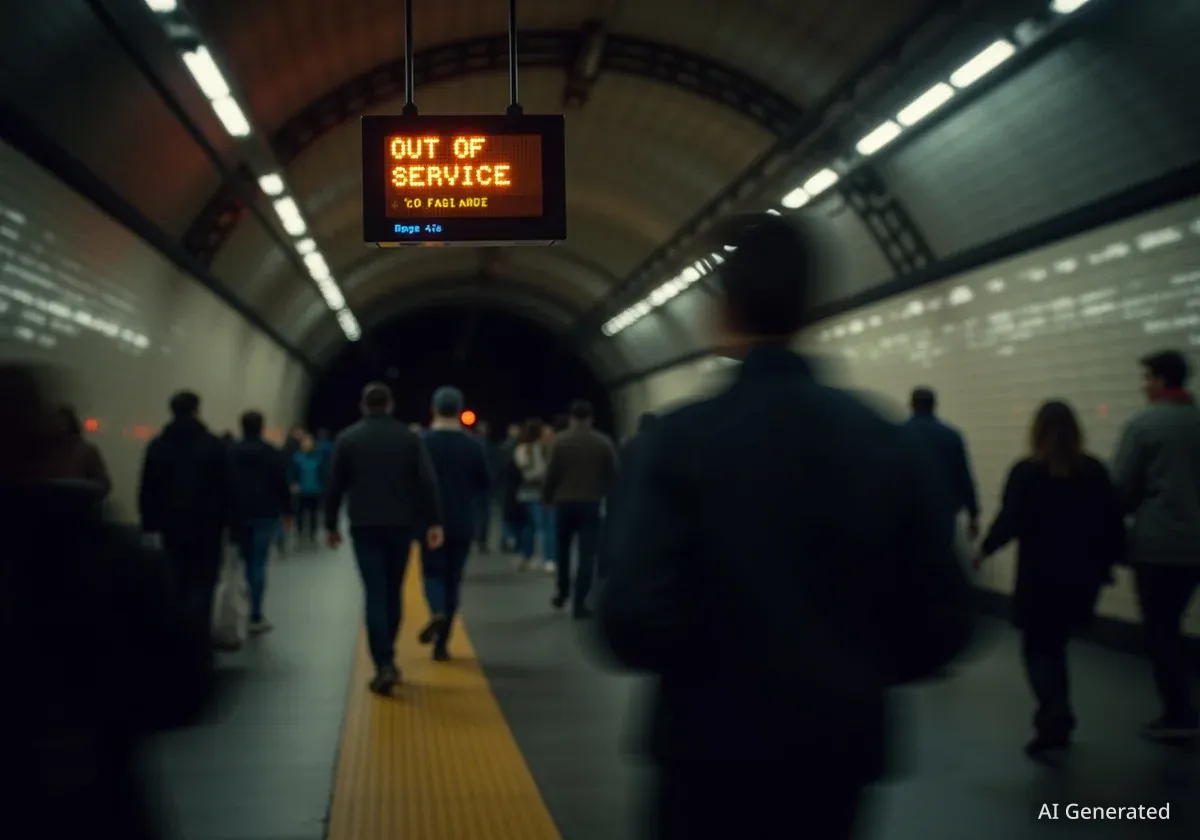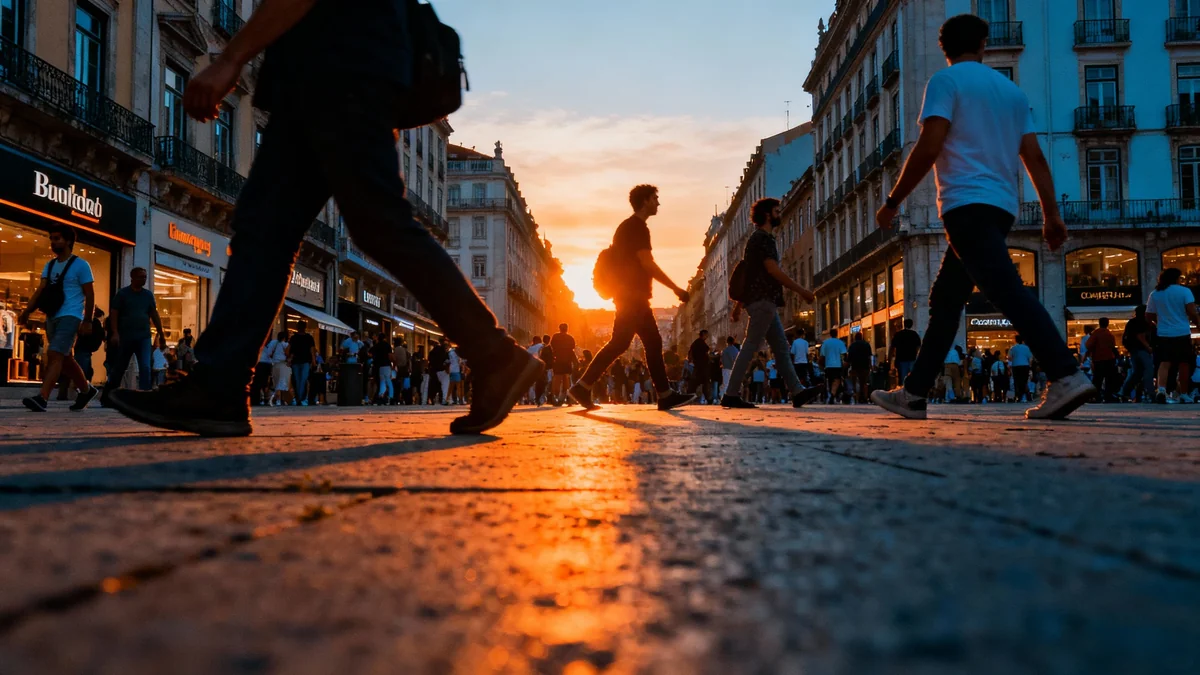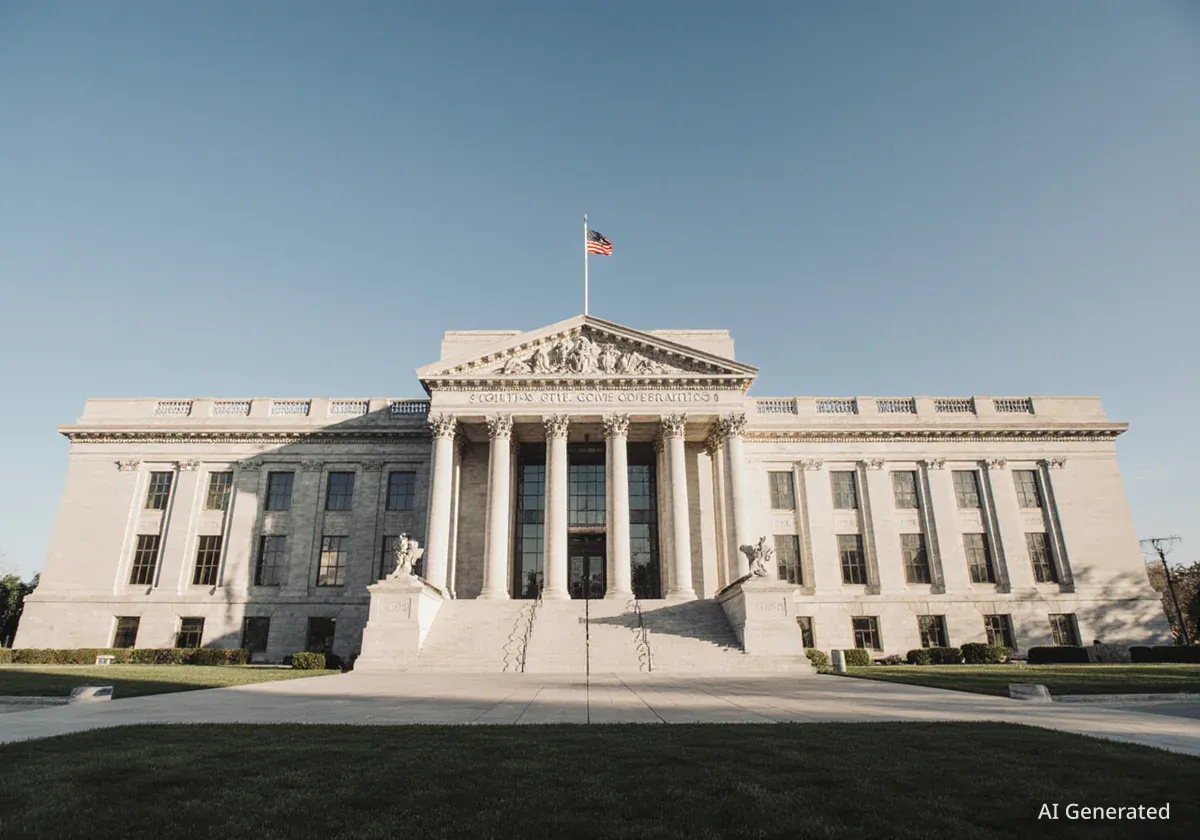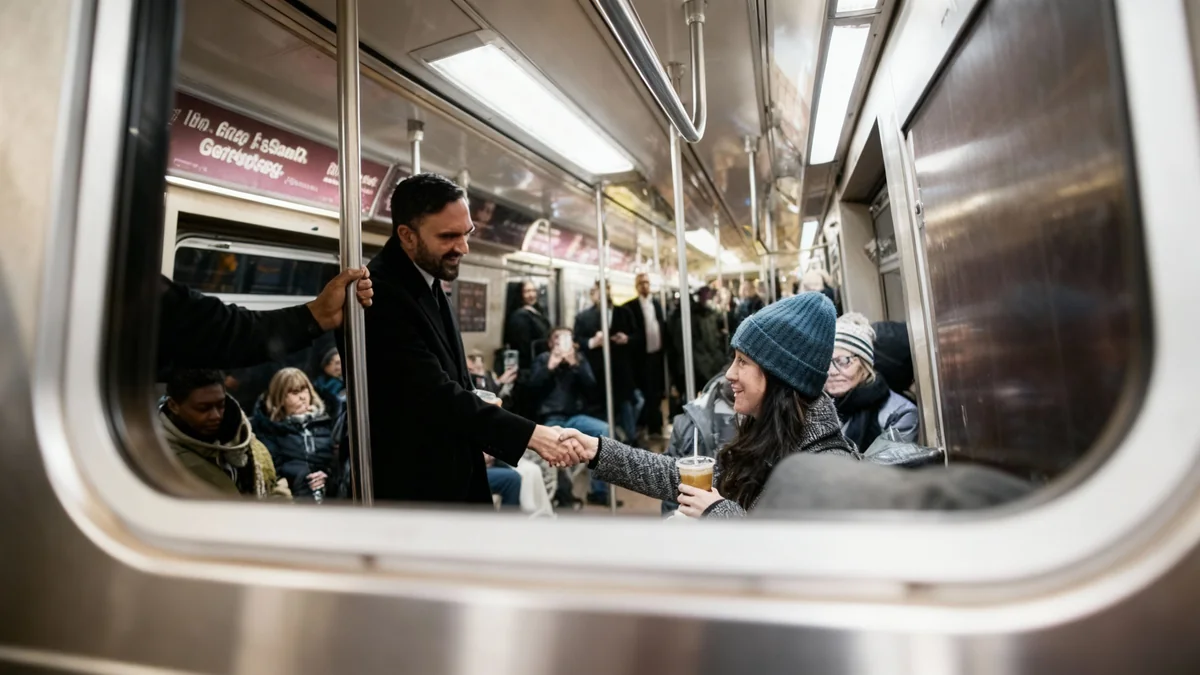The United States government has paused funding for significant transit projects in New York, including the Hudson Tunnel and the Second Avenue Subway. This decision comes as the Department of Transportation (USDOT) reviews whether certain small-business contractors are involved in improper diversity initiatives. The announcement, made on Wednesday, October 1, 2025, coincided with the start of a partial government shutdown, adding pressure on Democratic lawmakers.
The USDOT's action is based on a new agency rule that has not yet taken effect. This move appears to be a tactic aimed at influencing Democratic members of Congress during the ongoing federal budget dispute.
Key Takeaways
- Federal funding paused for Hudson Tunnel and Second Avenue Subway projects in New York.
- USDOT cites a review of small-business diversity initiatives as the reason.
- The decision is linked to the partial government shutdown and political pressure on Democrats.
- A $300 million reimbursement for the Second Avenue Subway is immediately affected.
- New York and New Jersey are expected to challenge any funding delays legally.
Federal Funding Review Targets Major Infrastructure
The Department of Transportation's announcement on Wednesday specifically mentioned a pause in funds for critical New York infrastructure. These projects include the Hudson Tunnel and the Second Avenue Subway extension. The USDOT stated its review focuses on small-business contractors and their participation in diversity programs.
This decision is particularly unusual because it references a new agency rule that is not yet active. The timing suggests a connection to the partial government shutdown, which began just hours before the announcement. The administration is using this issue to exert pressure on Democratic lawmakers in Congress.
Important Project Details
- Hudson River Tunnel Project: Valued at $17.2 billion, this project includes repairing an existing tunnel and building a new one for Amtrak and commuter lines between New Jersey and Manhattan. It has received over $11 billion in federal grants.
- Second Avenue Subway Extension: In 2023, the Biden administration awarded $3.4 billion for this project, which aims to extend the subway line into Harlem.
Political Context and Blame
Senate Minority Leader Chuck Schumer, a Democrat from New York, has been a strong advocate for both the Hudson Tunnel and Second Avenue Subway projects. He is currently leading the Democratic opposition in the budget standoff with President Donald Trump and other Republicans.
The USDOT's announcement directly attributed any potential delays in reimbursements to New York for these projects to Schumer, House Minority Leader Hakeem Jeffries, and other Democrats. The department even misspelled Jeffries' surname in its statement.
"Thanks to the Chuck Schumer and Hakeem Jefferies shutdown, however, USDOT's review of New York's unconstitutional practices will take more time," the department stated. "Without a budget, the Department has been forced to furlough the civil rights staff responsible for conducting this review."
Impact on New York and Legal Challenges
The immediate practical impact of this funding pause remains uncertain beyond a specific $300 million reimbursement for the Second Avenue Subway project. However, any substantial delays in federal funding due to political disagreements are likely to face swift legal action from both New York and New Jersey.
The department's forthcoming rule changes how it handles programs designed to assist small businesses owned by "socially and economically disadvantaged individuals." Following a district court ruling last year, women and certain minority racial groups will no longer be automatically considered economically disadvantaged when bidding for contracts.
Background on Disadvantaged Business Enterprise (DBE) Programs
For decades, Congress has enacted programs to support small businesses run by individuals considered socially and economically disadvantaged. These programs aim to promote fair competition and provide opportunities. The USDOT's new rule changes the criteria for presumed economic disadvantage, requiring a more individualized assessment.
USDOT sent letters to New York transit officials on Tuesday. These letters indicated that both the Second Avenue Subway extension and the Hudson Tunnel reconstruction project would require review. The purpose of this review is to "ensure nondiscrimination."
Economic Ramifications and State Response
The Hudson Tunnel project is particularly critical. The existing tunnel was severely damaged by Hurricane Sandy in 2012. A failure of this tunnel would significantly disrupt commuting in the metropolitan area. This region generates 10% of the country's total economic output.
Representative Frank Pallone, a Democrat from New Jersey, criticized the move. He described it as a "fabricated culture war" that could cause major problems for thousands of commuters.
"Any partisan move to stop this project is an attack on New Jersey residents and the economic engine of our region," Pallone said in a statement.
The USDOT specifically focused on these two projects in New York, a state governed by Democrats. The department cited their symbolic importance, calling them "arguably the largest infrastructure initiatives in the Western Hemisphere." The USDOT also stated that "the American people want to see them completed quickly and efficiently."
Previous Funding Threats and Ongoing Disputes
The remaining federal funding allocated for these projects amounts to $18 billion. However, it is unclear how much of this funding is specifically tied to Disadvantaged Business Enterprise programs now under review.
This is not the first time the USDOT has threatened New York transit funding. In August, the department indicated it might withhold 25% of federal transit funding for the Metropolitan Transportation Authority (MTA) in New York State. This threat was contingent on the MTA improving safety for subway track maintenance workers.
Furthermore, the Trump administration is also working to stop Manhattan's congestion pricing program. This program, introduced earlier this year, aims to reduce traffic and generate billions of dollars for mass transit.
The CEO of the Gateway Development Commission, Thomas Prendergast, stated that the Hudson Tunnel project has always complied with federal laws and rules. He affirmed the commission's willingness to cooperate with any reviews. Amtrak declined to comment. New York Governor Kathy Hochul, Senator Schumer, and Representative Jeffries did not respond to requests for comment.
President Trump, a former New York City real estate developer, had previously refused to approve funding for these projects during his first term in office.





